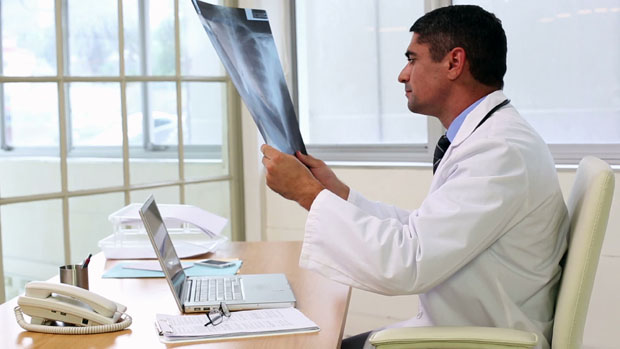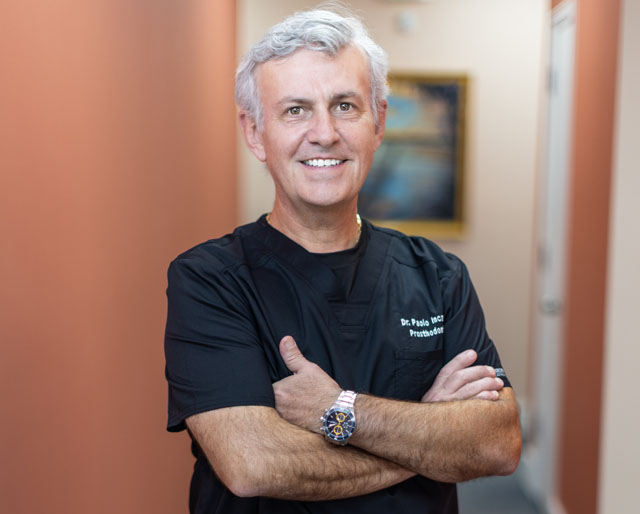Get to Know Your Doctor
20 Sep 2014
With the help of local experts, we examine the patient-doctor relationship, and discover some signs of hope for healthcare patrons
By BILL FARLEY

Back in the day, when the family doctor was an authority figure who knew most of his patients from infancy and kept his records on scraps of paper or in his head (a generation or so, just about all physicians were male), people sought him out once a year for a “routine physical” or when they were clearly injured or very, very sick.
The family doctor was the diagnostician as well as the prescriber of mysterious Rx healing potions, and if he felt whatever ailed a patient was out of his immediate realm of expertise, he recommended seeing a specialist.
All that’s pretty much the same today, even though doctors have gone high-tech and keep each patient’s history on computerized files, often on tablets that can be taken right into the examining room, and they are frequently linked to the records of all of the patient’s other physicians. And, they are expected to have a much broader range of knowledge about conditions that once upon a time might have had them scratching their heads and giving a referral for a consultation with an expert.
In addition to the time-honored tools such as thermometers, blood pressure cuffs and stethoscopes, today’s physicians have a battery of new and exciting devices to assist them in helping their patients back to being healthy.
A lot has changed in the doctor-patient relationship, but one thing is more important than ever, the patient’s opportunity and responsibility to participate in the healing process by using two important bodily organs, the lips and the brain.
Despite all of their sophisticated tools, today’s primary care physicians have such large caseloads that their time with each patient is limited. They have to get a handle on what’s wrong with each individual, what’s causing the problem and what can be done to prevent and/or cure it.
That’s where asking questions comes in, and you, the patient, can direct the conversation so that the doctor has the most complete picture of what’s going on in your body and your mind.
If that seems daunting, it’s not. Today, each patient has access to a host of resources to assist him or her in formulating key questions that will make each office visit as rewarding and beneficial as possible.
In general, the best and most widely used medical web sites such as WebMD, Medicine.net,The Cleveland Clinic and the federal Agency for Healthcare Research and Quality strongly recommend that before each office visit, patients put together a brief but relevant list of questions they’d like answered by their primary care doctor.
Ask Questions As with all good relationships, communication if key. Here are some helpful hints for talking to your doctor.
» “What do you think is causing my problem?”
» “What tests will you do to diagnose the problem and how safe are those tests?”
» “What is the long-term outlook for my condition, with and without treatment?”
» “What are my treatment options?”
» “Is it necessary for me to be monitored for side effects of any medications you prescribe, and might those medications react adversely with other meds I am taking?”
» “What hospital is best for my needs?”
There are literally dozens of questions a patient can write down on paper or on a smart phone or tablet as reminders for their office visit. It’s not necessary or even possible to ask them all, so putting together a check list and trimming it down to the most important questions about one’s condition is important.
Luckily, there are very specific resources on the internet to assist and guide patients. Many offer very specific recommendations for questions relating to the conditions in which their doctors specialize – cancer, diabetes, arthritis, sports medicine and many more. It’s easy and free to visit those sites and learn the questions they believe you should be asking your health care provider.
Dr. John Rowe, Jr. of East Cooper Family Practice said “It’s important that both new and returning patients provide me with a current list of all their medicines. I’m particularly interested in any changes in their medications ordered by other physicians, specialists or ER doctors. I need to understand the reasoning behind any changes so we can assess the effects of those decisions on the patient, and can help guide whatever specialist is making that decision.”
“I also want to know about any lab tests or other tests done outside our facility. A hard copy of those documents in hand is the best, because that tells me when those tests were ordered, when they were done and their results, and I can evaluate them right away rather than making the patient wait hours, days or even weeks while I work on getting them.”
“It’s fine with me if patients bring in lists of symptoms or problems they’d like to discuss. But, they have to understand that it’s not always possible for their physician to cover them all in one appointment. I like to tell the patient to pick the top one or two items he or she feels are their priorities and I’ll do the same. Often, what I see as more serious health issues and what patients are most concerned about are not the same.”
“Patients should always ask their physician how he or she proposes to treat a problem, what the upsides and downsides are to the treatment, and what outcome and prognosis can be expected. If a treatment is doing what it’s supposed to, it’s crucial that the patient let the doctor know. He may already be thinking of alternative treatments to try. It’s absolutely true that no doctor can try to fix what he doesn’t know about.”
Dr. Laura Kinney of Tidewater Internal Medicine, agrees that lists of patient medications are important in preparing for an office visit. She feels that patients should be prepared to provide additional information including past medical conditions, surgeries with dates and names of surgeons, and any allergies the patient might suffer from such as to medications, to certain foods or to environmental factors
“If there are any holes in that family history, patients should contact relatives, or, if they are unavailable, people who knew them. That information is particularly helpful especially with conditions that are passed genetically as it permits the physician to factor them into the health equation.”
Dr. Kinney suggests that bringing one’s medicine bottles to the office can be extremely important. “Sometimes, a patient won’t consider some medications pertinent to their doctor and will leave them off a list. In that instance, it’s possible to prescribe a medication that may be contraindicated in combination with one or more other medications.”
Dr. Kinney urges patients not to forget about supplements and other over-the-counter products as they can often interact with prescribed medications in ways that can be detrimental to the patient’s health.
From her practice’s perspective, she expects patients to become informed about office policies and procedures, such as when and how test results will be provided to them, and how to get prescriptions refilled after regular office hours.
Important for all patients to learn about and keep in mind is their physician’s office cancellation policy. “These days, appointments are at a premium. Doctors have many other patients to be seen, sometimes on a more urgent basis. No-shows are unfair and a disservice to the doctor, other patients, and, ultimately, the inconsiderate patient him or herself.”
At the end of the day, what’s just as important as being prepared to present your primary care physician with all the facts and figures about the state of your health, is the willingness and ability to participate in an active dialogue. There’s nothing that inhibits a productive examination more, than a patient who is unwilling or unable to talk openly to the doctor, and then listen attentively to what that healer has to say.












